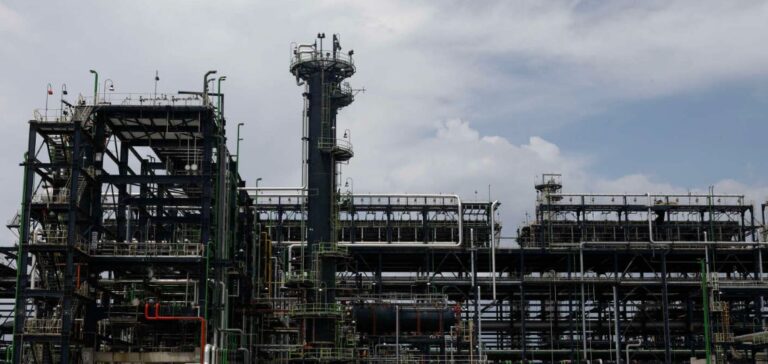The Dangote refinery on the outskirts of Lagos, built by Aliko Dangote, Africa’s richest man, is the largest on the continent. With a capacity of 650,000 barrels per day (bpd), it was designed to reduce Nigeria ‘s dependence on imported fuels due to the country’s insufficient refining capacity. Since commencing operations in January, the refinery has encountered difficulties in securing an adequate supply of crude oil to Nigeria, which, despite its status as Africa’s largest oil producer, faces problems of theft, pipeline vandalism and low investment.
Negotiations with Libya and other suppliers
To overcome these obstacles, the Dangote refinery has entered into negotiations with Libya to import crude oil. Refinery executive Devakumar Edwin confirmed that discussions are also planned with Angola and other African countries. Crude oil is already imported from Brazil and the USA, but Dangote is looking to diversify its sources to ensure long-term stability of supply.
Strategic Partnerships and Exports
The refinery has established partnerships with international traders and major oil companies such as Trafigura, Vitol, BP and TotalEnergies for the export of its diesel oil. Edwin revealed that these traders mainly transport diesel to offshore markets, which has enabled Dangote to take market share from European refiners in West Africa. Dangote has also set up an oil trading arm, with offices in London and Lagos, to manage the supply and sale of refined products.
Regulatory challenges and outlook
A notable challenge for the refinery is the regulation of the sulfur content of its diesel fuel. Nigeria’s upstream regulator criticized the refinery for sulfur levels above the required limit of 200 parts per million (ppm). Aliko Dangote replied that the sulfur level was initially higher, but has now dropped to 88 ppm and should reach 10 ppm by early August as production increases. This improvement should enable the refinery to comply with international standards and strengthen its position on world markets. Negotiations with Libya and other potential suppliers, as well as efforts to reduce sulfur content, illustrate the proactive measures taken by the Dangote refinery to ensure its viability and competitiveness. These initiatives testify to the refinery’s commitment to overcoming local challenges and establishing itself as a key player in the African and global oil industry.






















